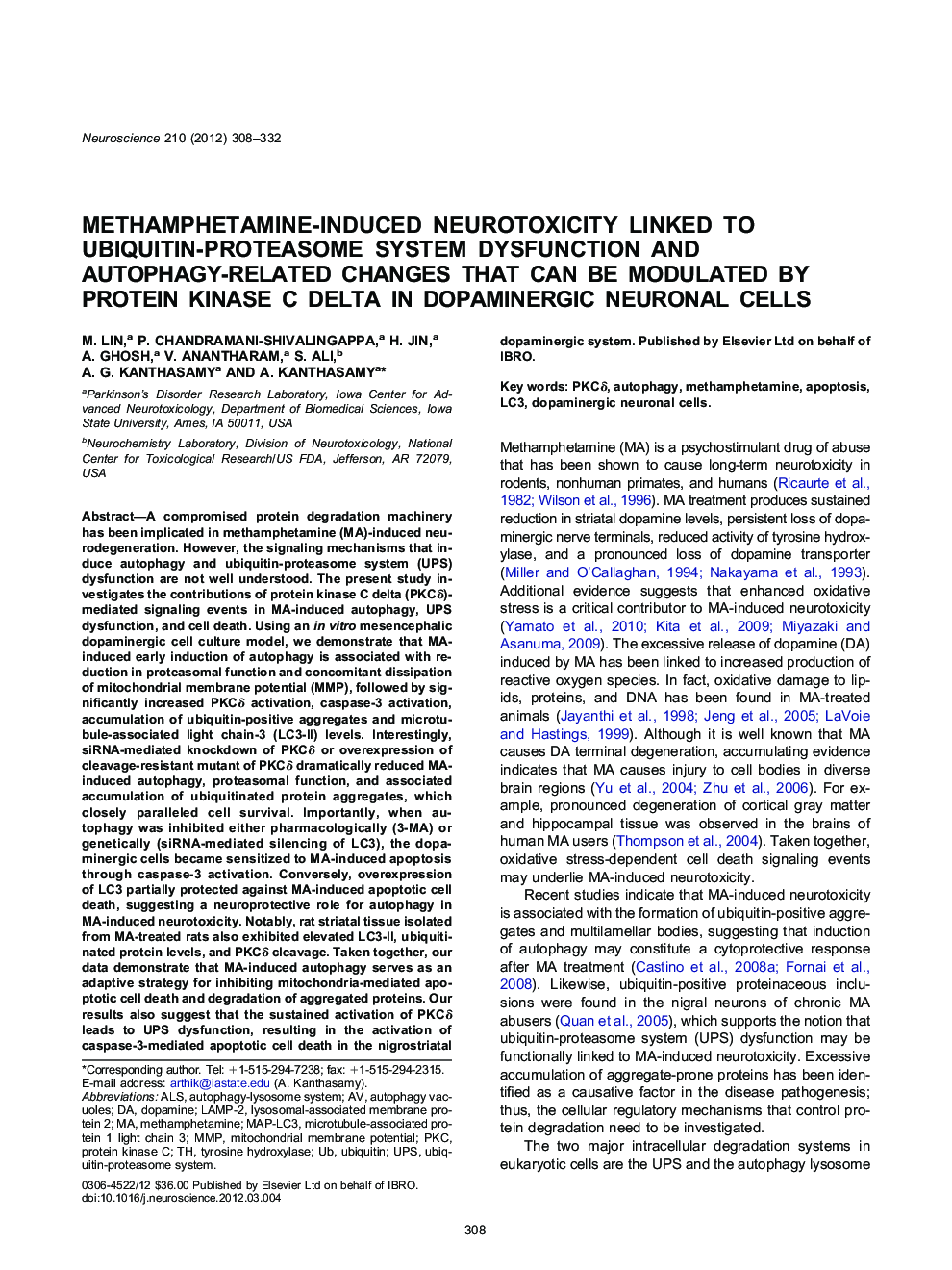| Article ID | Journal | Published Year | Pages | File Type |
|---|---|---|---|---|
| 4338375 | Neuroscience | 2012 | 25 Pages |
A compromised protein degradation machinery has been implicated in methamphetamine (MA)-induced neurodegeneration. However, the signaling mechanisms that induce autophagy and ubiquitin-proteasome system (UPS) dysfunction are not well understood. The present study investigates the contributions of protein kinase C delta (PKCδ)-mediated signaling events in MA-induced autophagy, UPS dysfunction, and cell death. Using an in vitro mesencephalic dopaminergic cell culture model, we demonstrate that MA-induced early induction of autophagy is associated with reduction in proteasomal function and concomitant dissipation of mitochondrial membrane potential (MMP), followed by significantly increased PKCδ activation, caspase-3 activation, accumulation of ubiquitin-positive aggregates and microtubule-associated light chain-3 (LC3-II) levels. Interestingly, siRNA-mediated knockdown of PKCδ or overexpression of cleavage-resistant mutant of PKCδ dramatically reduced MA-induced autophagy, proteasomal function, and associated accumulation of ubiquitinated protein aggregates, which closely paralleled cell survival. Importantly, when autophagy was inhibited either pharmacologically (3-MA) or genetically (siRNA-mediated silencing of LC3), the dopaminergic cells became sensitized to MA-induced apoptosis through caspase-3 activation. Conversely, overexpression of LC3 partially protected against MA-induced apoptotic cell death, suggesting a neuroprotective role for autophagy in MA-induced neurotoxicity. Notably, rat striatal tissue isolated from MA-treated rats also exhibited elevated LC3-II, ubiquitinated protein levels, and PKCδ cleavage. Taken together, our data demonstrate that MA-induced autophagy serves as an adaptive strategy for inhibiting mitochondria-mediated apoptotic cell death and degradation of aggregated proteins. Our results also suggest that the sustained activation of PKCδ leads to UPS dysfunction, resulting in the activation of caspase-3-mediated apoptotic cell death in the nigrostriatal dopaminergic system.
▶Methamphetamine (MA)-induced mitochondrial and ubiquitin proteasomal system (UPS) dysfunction coincided with induction of autophagy. ▶MA-induced prominent proteolytic cleavage of protein kinase C delta (PKCd). ▶MA-induced lysosomal dysfunction. ▶siRNA-mediated genetic knockdown of PKCd conferred resistance against MA-induced apoptotic cell death.
